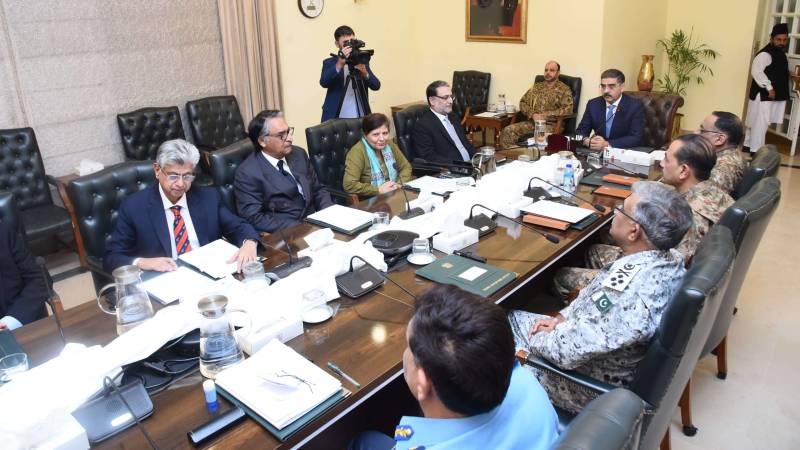
Pakistan on Friday said that it does not wish to have hostilities with its neighbours, but this does not mean it will compromise its sovereignty and national security. However, the two countries must mutually overcome minor irritants through dialogue and diplomacy.
This was decided during a meeting of the National Security Committee (NSC) in Islamabad on Friday to review the emerging situation on the southwestern border with Iran. The NSC was chaired by Caretaker Prime Minister Anwaarul Haq Kakar and attended by cabinet members and chiefs of the military tri-services, among other relevant members.
A readout of the meeting issued by the Prime Minister's Office on Friday evening said that they undertook a wholesome review of the security situation in the country and the region. They also took stock of the ‘Operation Marg Bar Sarmachar’, which was successfully executed against Pakistani originated Baloch terrorists residing in ungoverned spaces inside Iran.
The forum lauded the professional, calibrated and proportionate response by the armed forces against unprovoked and unlawful violation of Pakistan’s sovereignty.
An update on the situation along the borders and necessary full preparations done to comprehensively respond to any further violation of national sovereignty was also deliberated.
The committee reiterated the unflinching resolve that sovereignty and territorial integrity of Pakistan are absolutely inviolable and sacrosanct and any attempt by anyone to breach it on any pretext will be responded with full might of the state.
The meeting reaffirmed that the security and safety of the people of Pakistan is of paramount importance and no stone will be left unturned to ensure it.
Participants of the meeting expressed that Iran, being a neighbourly and brotherly muslim country, with multiple communication channels existing between the two, should be mutually utilised to address each other’s security concerns in the larger interest of regional peace and stability.
The meeting impressed upon Pakistan’s commitment to sovereignty and territorial integrity of all countries in accordance with the UN charter and international norms.
The committee also reiterated the resolve to deal with the menace of terrorism, in all its forms and manifestations, with an iron hand.
It was concluded that in line with the universal principles governing the conduct of good neighbourly relations, the two countries would mutually be able to overcome minor irritants through dialogue and diplomacy and pave the way to further deepen their historic relations.
Earlier, Geo News reported that, per sources, Caretaker Foreign Minister Jalil Abbas Jilani gave a briefing on the diplomatic talks with Iran and other countries.
Pakistan's ambassador to Iran, who was recalled to Islamabad in the aftermath of Iran's strike as Pakistan downgraded relations, also briefed the meeting.
Military chiefs gave a briefing on the security situation and the intelligence-based operation conducted in Iran.
Sources said that the meeting lasted for over two hours, and it was made clear that Pakistan does not wish to foster hostile relations with its neighbours. At the same time, it could not compromise on its sovereignty and national security.
The forum resolved not to negotiate on the country's sovereignty, integrity and independence.
The meeting was called after Iran launched a drone and missile attack at a suspected terrorist hideout in Panjgur, Balochistan, around 50 kilometres inside Pakistani territory.
Breaking the ice: Jilani speaks with Iranian counterpart
Caretaker Foreign Minister Jalil Abbas Jilani spoke with his Iranian counterpart Hossein Amir-Abdollahian via telephone on Friday.
During their conversation, Jilani expressed Pakistan's readiness to work with Iran on all issues based on the spirit of mutual trust and cooperation.
According to a readout of the call issued by the Foreign Office, Jilani stressed that respect for territorial integrity and sovereignty must underpin this cooperation.
The two foreign ministers agreed that working-level cooperation and close coordination on counter-terrorism and other aspects of mutual concern should be strengthened.
They also agreed to de-escalate the situation.
The return of ambassadors of the two countries to their respective capitals and the resumption of full diplomatic ties were also discussed.
This is the second telephonic interaction between the two foreign ministers this week. Earlier, Jilani had received a call from his Iranian counterpart on Wednesday after Iran had violated Pakistan's airspace.

